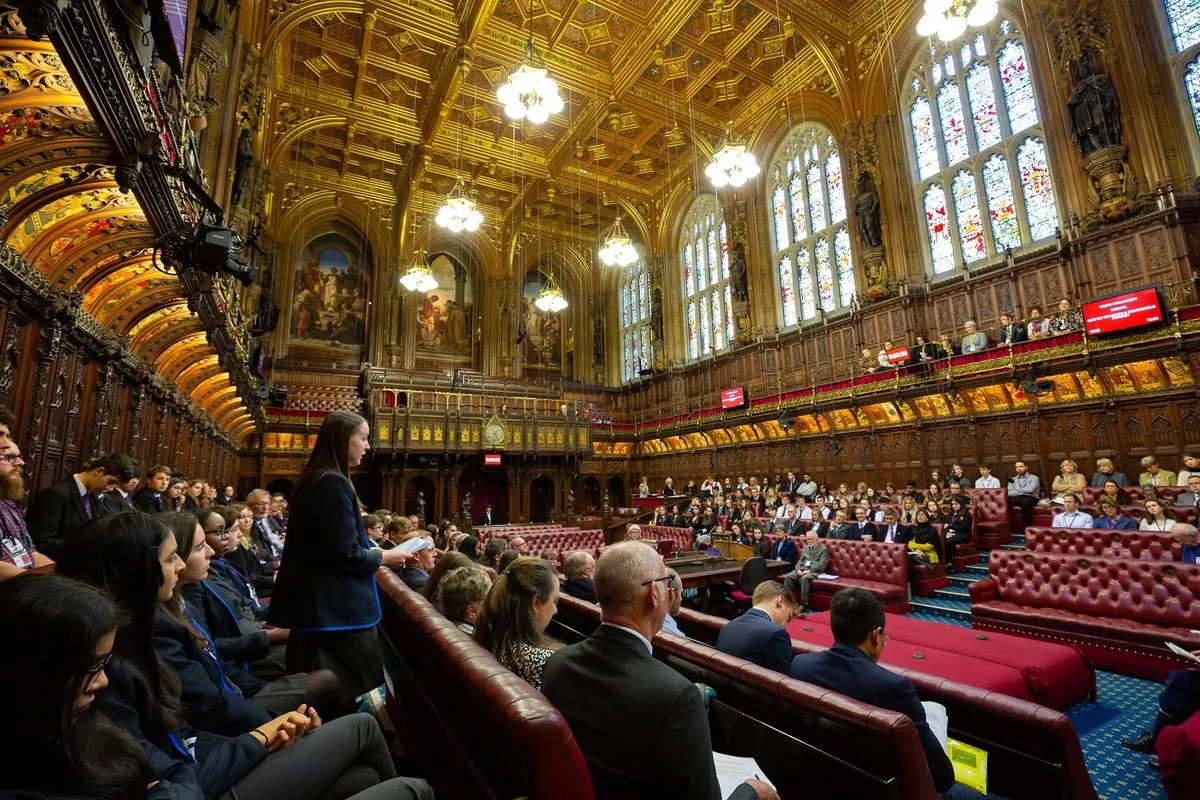UK's House of Lords: The Debate Over Hereditary Peers' Future
Labour's plan to remove hereditary peers from the House of Lords sparks debate. The author, a non-affiliated peer, defends the 92 hereditary members, highlighting their contributions and questioning the motives behind the proposed change.

In the United Kingdom's House of Lords, a significant change is on the horizon. The Labour Party, led by Sir Keir Starmer, has initiated a bill to remove the remaining 92 hereditary peers from the upper chamber. This move has sparked a debate about the role of hereditary membership in modern British politics.
The House of Lords, established over 700 years ago, has undergone several reforms throughout its history. The most recent major change occurred in 1999 when Tony Blair's government reduced the number of hereditary peers from over 700 to 92. This compromise was intended to be temporary, pending further reforms.

The current proposal to eliminate hereditary peers entirely has raised questions about the nature of representation and the value of historical continuity in governance. Proponents argue that it's a step towards modernization and more democratic representation. However, critics, including the author of this article, contend that the hereditary peers bring unique perspectives and contributions to the legislative process.
One such hereditary peer is Stephen Michael Wedgwood Benn, the third Viscount Stansgate. Benn, known affectionately as "Big Benn" in the Lords, was elected as a Labour hereditary peer in 2021. His presence in the chamber highlights the complex history of some political families, as his father, Tony Benn, famously renounced his title to remain in the House of Commons.
The author argues that the hereditary peers, despite their anachronistic origins, serve a valuable role:
- They often represent rural interests
- Many come from private sector backgrounds
- They tend to approach debates with courtesy and non-partisanship
Critics of the proposed change suggest that removing hereditary peers without a comprehensive reform plan for the House of Lords could be shortsighted. They argue that the current system, while imperfect, provides a balance of perspectives and expertise.
"Laws should not be made in Parliament by people present by accident of birth."
This statement, however, raises questions about other hereditary elements in the British system, such as the monarchy's role in approving legislation.
As the debate continues, it's worth noting that the House of Lords plays a crucial role in scrutinizing legislation and government actions. With a maximum membership of 800 as of 2024, the chamber includes not only hereditary peers but also life peers and 26 bishops of the Church of England.
The outcome of this proposed change will likely have significant implications for the future of British governance and the balance of power within its parliamentary system.


































